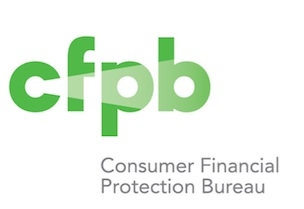Advertisement
CFPB Now Accepting Complaints Regarding Non-Bank Products

The Consumer Financial Protection Bureau (CFPB) is now accepting complaints from consumers encountering problems with prepaid cards, such as gift cards, benefit cards, and general purpose reloadable cards. Consumers can also now submit complaints about additional non-bank products, including debt settlement services, credit repair services, and pawn and title loans.
“We are taking another important step to expand the Bureau's handling of consumer complaints,” said CFPB Director Richard Cordray. “By accepting consumer complaints about prepaid products and certain other services we will be giving people a greater voice in these markets and a place to turn to when they encounter problems.”
The Bureau started taking complaints about credit cards when it opened its doors in July 2011. In addition to taking complaints regarding today’s new products, the CFPB also handles complaints about mortgages, bank accounts and services, private student loans, auto and other consumer loans, credit reporting, debt collection, payday loans, and money transfers. The Bureau requests that companies respond to complaints within 15 days and describe the steps they have taken or plan to take. The CFPB expects companies to close all but the most complicated complaints within 60 days. Consumers are given a tracking number after submitting a complaint and can check the status of their complaint by logging on to the CFPB Web site.
Prepaid Cards
Prepaid cards generally allow a consumer to access money that has been paid and loaded onto the card upfront. A prepaid card can refer to a number of different types of cards. For example, gift cards are prepaid cards that typically can be used at one specific company like a restaurant or retailer and are used up once the value on the card is depleted. Other cards may be loaded with a consumer’s salary or other employee benefits such as healthcare or transit payments.
“General purpose reloadable” prepaid cards allow consumers to pay to reload the card and reuse it, and often allow consumers to take money out at ATMs. Many consumers use reloadable prepaid cards as an alternative to a traditional checking account. Some prepaid cards, however, have fewer consumer protections than debit or credit cards. In the coming months, the Bureau plans to issue a proposed rule aimed at increasing federal consumer protections for general purpose reloadable prepaid cards.
Consumers can submit prepaid card complaints to the Bureau about:
►Problems managing, opening, or closing their account
►Overdraft issues and incorrect or unexpected fees
►Frauds, scams, or unauthorized transactions
►Advertising, disclosures, and marketing practices
►Adding money and savings or rewards features
Debt Settlement and Credit Repair Services
Debt settlement services typically promise consumers that they will renegotiate, settle, or in some way change the terms of a person’s delinquent debt owed to a creditor or debt collector. These companies may promise to reduce the outstanding balance, interest rates, or fees a person owes. Credit repair services often promise to improve a consumer’s credit reports by contacting credit reporting agencies on the consumer’s behalf and challenging items on the reports. The fees these types of companies charge consumers often are high. The CFPB has taken several enforcement actions against debt settlement firms for taking advantage of struggling consumers.
Consumers can submit debt settlement and credit repair complaints to the Bureau about:
►Excessive or unexpected fees
►Advertising, disclosures, and marketing practices
►Customer service issues
►Frauds or scams
Pawn and Title Loans
Pawn stores and title loan companies often provide small loans to consumers using personal property or a vehicle title as collateral. If a consumer defaults or fails to make payments, the lender can take possession of the consumer’s property or car. These loans are frequently short term and may have high interest rates.
Consumers can submit pawn loan and title loan complaints to the Bureau about:
►Unexpected charges or interest fees
►Loan application issues
►Problems with the lender correctly charging and crediting payments
►Issues with the lender repossessing, selling, or damaging the consumer’s property or vehicle
►Unable to contact lender
About the author





